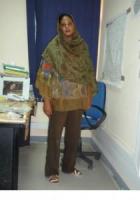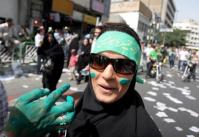A rather chilling and sobering story By Nikki Jecks
from the BBC News
An important story to share, think about and consider what can be done.

The trial of three of the men accused of the rape and murder of
one of South Africa's leading sportswomen, the openly gay football star
Eudy Simalane, resumes in South Africa on Wednesday.
Thirty-one lesbian women have been reported raped and murdered in homophobic attacks in South Africa since 1998.
But
according to Triangle - a gay rights organisation - only two cases of
"corrective rape" have ever made it to the courts; there has been only
one conviction.
"This is a sad fact in this country generally, women are very reluctant to come forward," says Sharon Cox from Triangle.
"Corrective rape" is the term used to describe the rape of a lesbian
woman by a man to either punish her, or "correct" her behaviour.
Ms Cox says rape is power is South Africa.
"The thinking is, all it takes is one good man to cure you of being a lesbian," she told the BBC's Newshour programme.
Gang rape
South Africa has one of the highest rates of sexual violence in the world. More than 54,000 cases are reported to the police each year. Among men in their early 20s, it has become almost a game.
Another of the group sitting in a bar in the city of Kempton Park, north-east of Johannesburg explains how it works. He
says the friends hide under the bed until the first man is finished and
has left the room, then they take turns having sex with the woman,
pretending to be first man.
"The room is dark and the girl is
not even going to notice if it's the second guy sleeping with her,"
explains another friend in the group.
"Most of the time when it does happen, the girl is taking some drinks, but she is quite aware of what is happening."
At
the heart of these different manifestations of rape are deep-rooted
cultural stereotypes - that men have ownership over women, and are of
greater importance.
South Africa has the highest incidence of rape amongst Interpol states
1 in 4 men admit to rape
Nearly 150 women are raped every day
More than 54,000 cases of rape were "reported" in 2006 (unreported statistic is anyone's guess!)
 A Sudanese female journalist facing 40 lashes for wearing trousers
in public in violation of the country's strict Islamic laws told a
packed Khartoum courtroom Wednesday she is resigning from a U.N. job
that grants her immunity so she can challenge the law on women's public
dress code.
A Sudanese female journalist facing 40 lashes for wearing trousers
in public in violation of the country's strict Islamic laws told a
packed Khartoum courtroom Wednesday she is resigning from a U.N. job
that grants her immunity so she can challenge the law on women's public
dress code.

 Susan notes: last week while in London, I attended a fundraising event for
Susan notes: last week while in London, I attended a fundraising event for